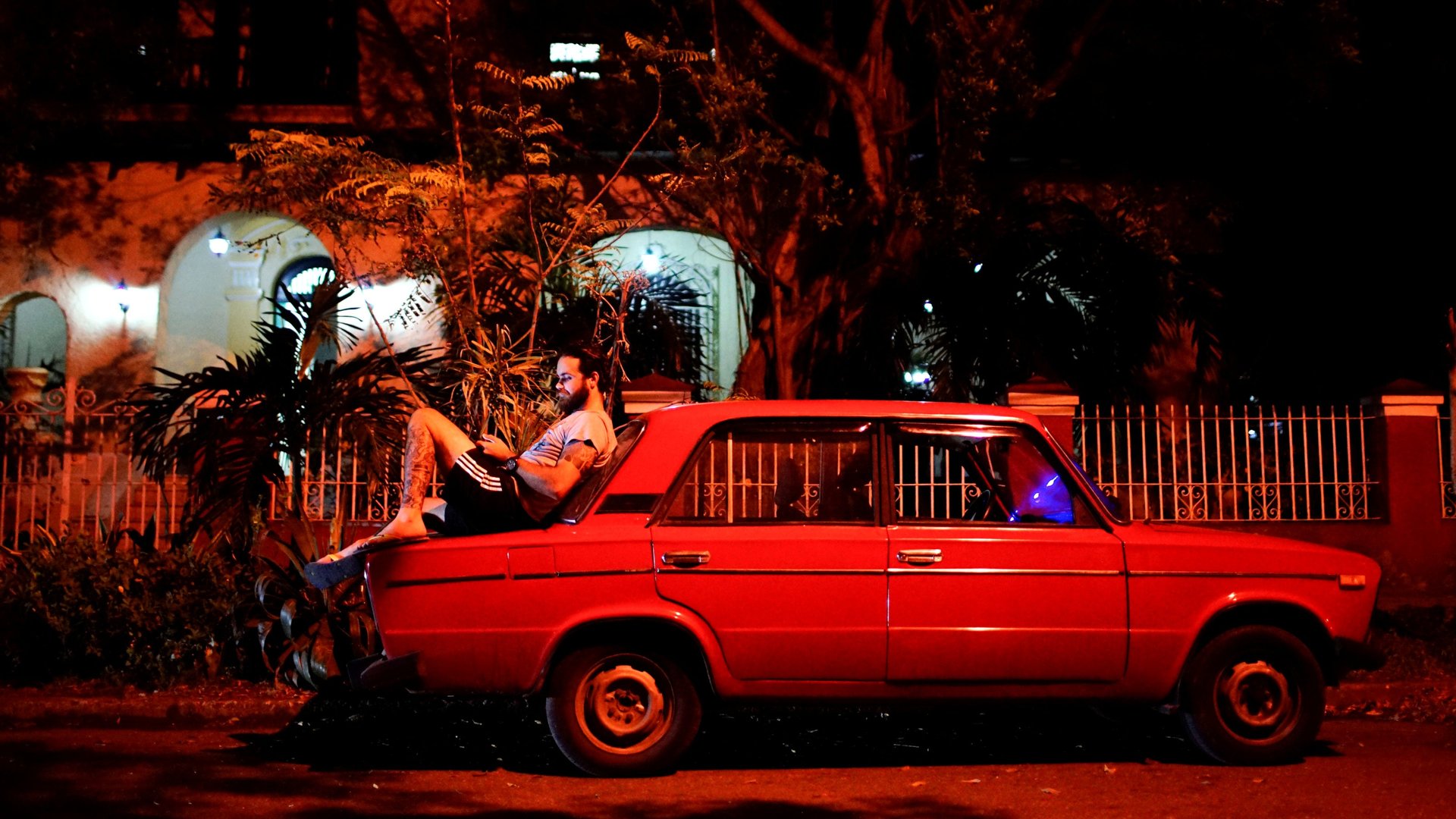Cuba’s entrepreneurs are under attack by Donald Trump
The Trump administration is setting out to crush free markets in Cuba.


The Trump administration is setting out to crush free markets in Cuba.
This week, White House National Security advisor John Bolton announced new policies to further restrict US travel to Cuba, allow lawsuits against businesses operating there, and reduce the previously unlimited amount of money that Cuban-Americans can send back to their families on the island to $1000 per person every three months.
If fully enacted, the policies will crimp the Cuban government’s access to foreign exchange, but in the process it will damage Cuba’s nascent private sector far more than a ruling regime that has out-lasted six decades of US embargo. Trump is pulling the rug out from Cuba’s cuentrapropistas—literally, self-employed—eliminating their sources of capital and revenue and reducing their influence during the all-important transition to a post-Castro Cuban government.
As many as four in ten working-age Cubans work legally in the Cuban private sector. The most visible of these entrepreneurs are in tourist services, operating small private hotels and restaurants, or working as drivers or guides, but their ranks include barbers, retailers, mechanics, and other small businesses who work directly for Cubans. Much of their capital comes from Cuban-Americans, particularly much-needed investment in building renovation that keeps laborers and contractors employed.
Cuba’s economic situation is already precarious, with Communist Party chief Raul Castro warning Cubans last week that economic troubles are ahead. The disintegration of Venezuela robbed Cuba of a key economic patron, and the country already struggles with food and fuel shortages.
On a recent trip, Cubans I met worried that they might enter another time akin to the “special period” after the fall of the Soviet Union, when the island endured grueling recession. In a joke that is not a joke, one friend recalled how her generation of Cuban nineties kids grew up shorter than older or younger generations because they simply did not have enough food to eat.
At the time, Cuba was forced to begin liberalizing its economy, a process that has continued in fits and starts. It exploded after president Barack Obama’s decision to push for normalization with Cuba despite the legal trade embargo on the island. Obama’s decision to loosen travel restrictions and allow limited business activity allowed visitors and Cuban Americans to bring much needed foreign capital into the country. At the same time, Cuba began to expand the categories of work that could be performed by entrepreneurs and integrate them into the country’s economy.
Today, this generation of entrepreneurs are pushing their government for access to wholesale markets and the creation of new corporate laws, offering an organic Cuban alternative to stagnant state-owned enterprise. Bolton and other American hardliners with Cold War mentalities are taking an all or nothing approach: Any policy that might benefit the Cuban economy will benefit the Cuban regime.
But 2019 is not 1991 or 1961. There’s no question that Cuba is not a free country. Human rights groups cannot visit, and the government uses detention, shaming, and censorship to block criticism and stifle dissent. Yet human rights groups like Amnesty International argue against more travel restrictions, which they say only serve to further isolate the Cuban people and give their government a convenient opponent to rally against.
Trump will become the first president not to suspend a 1996 law that allows lawsuits against any company doing business in connection with Cuban properties seized after the revolution. The huge amount of legal uncertainty around these claims is expected to reduce much-needed foreign investment in Cuba and it will also cause friction with European allies whose global companies operate there. The harsher diplomatic fall-out may be yet to come: Cuba will only have more incentive to make concessions to Russia and China as it is cut off from other sources of economic independence.
At a time when Trump brags about his friendship with murderous autocrats like North Korea’s Kim Jong Un or Saudi Crown Prince Mohamed bin Salman, Cubans are skeptical that he is taking a stand for democracy. They fear privation, and see the president creating an electoral bogeyman out of Venezuela and Cuba to deploy in the 2020 elections. American businesses with Cuban interests agree. James Williams, head of the trade group Engage Cuba, says that the only reason for the policies is to “appease fringe hardliners in South Florida ahead of the 2020 election.”
In more than sixty years of embargo and revolution, pragmatism has come to define the Cuban character. A Chinese engine can work in a vintage Chevy, and a family home can be a restaurant or a hotel. US policy toward Cuba, meanwhile, is defined by a near-theological belief that isolating the Cuban people will lead them to abandon national self-determination. American and Cuban hard-liners find themselves sharing the same agenda: Crushing the private sector to ensure that only socialism remains.